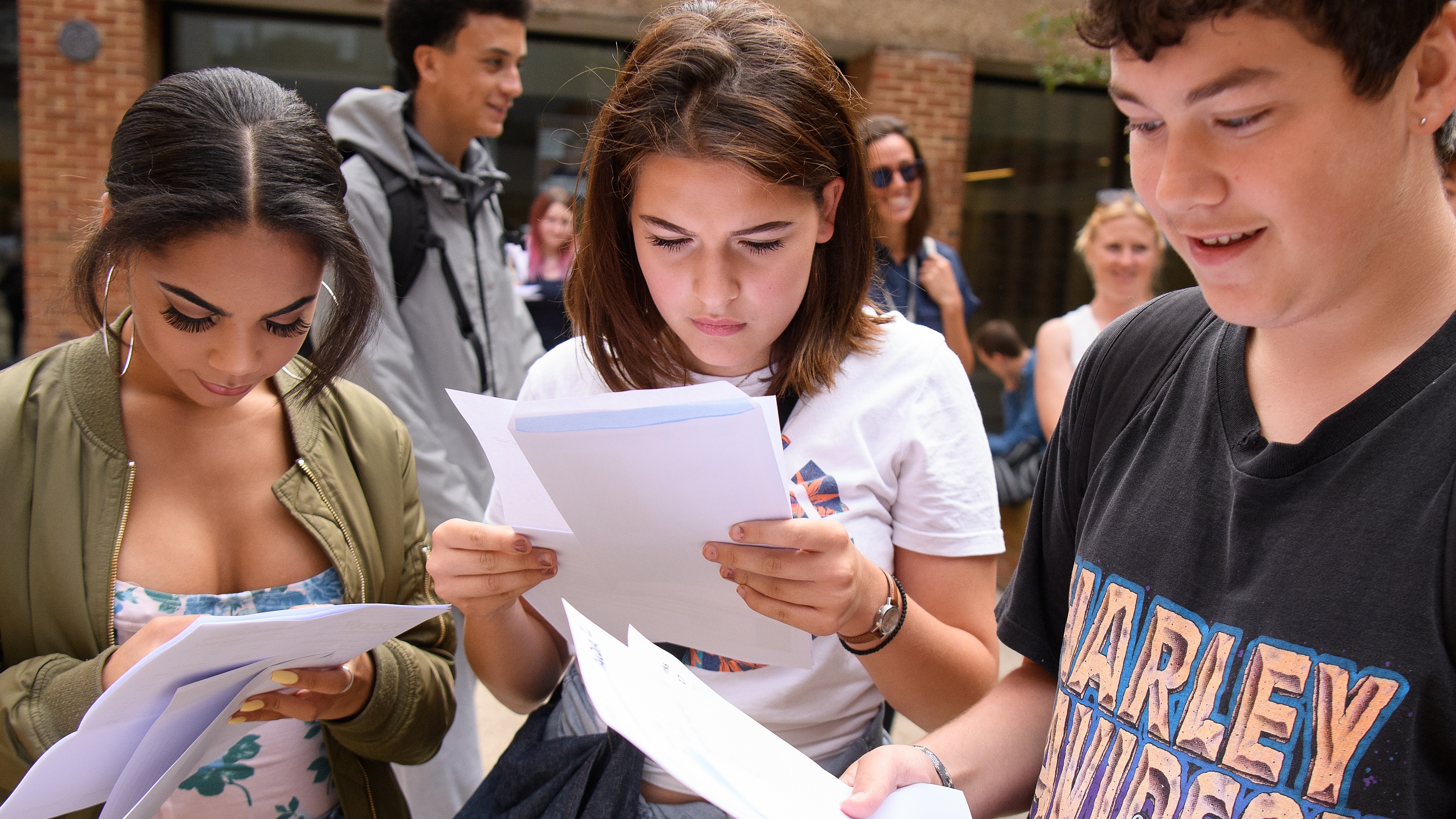Coronavirus: has lost school time set the timer on a second exam scandal?
Education secretary mulling 2021 exams delay amid warnings that pandemic has boosted inequality

A free daily email with the biggest news stories of the day – and the best features from TheWeek.com
You are now subscribed
Your newsletter sign-up was successful
The learning gap between rich and poor pupils in England has increased dramatically during the coronavirus crisis, a survey of teachers has found.
According to a newly published report from the National Foundation for Educational Research (NFER), interviews with 3,000 teachers across 2,200 schools in England suggest that the gap between some disadvantaged pupils and their wealthier peers had widened by as much as 46% by the end of the last school year.
As the new term kicks off following the recent exam results chaos, Education Secretary Gavin Williamson has hinted that next summer’s GCSE and A-level exams could be delayed in order to allow struggling students enough time to catch up. But can the government prevent further grading mayhem?
The Week
Escape your echo chamber. Get the facts behind the news, plus analysis from multiple perspectives.

Sign up for The Week's Free Newsletters
From our morning news briefing to a weekly Good News Newsletter, get the best of The Week delivered directly to your inbox.
From our morning news briefing to a weekly Good News Newsletter, get the best of The Week delivered directly to your inbox.
What did the report say?
The survey of teachers was carried out just before the end of term in July and found that on average, school staff had covered just 66% of their usual curriculum for the 2019-2020 academic year.
The “average learning lost was three months for all pupils”, but “more than half of pupils at schools in the most deprived areas lost four months or more, compared with just 15% of those in the least deprived areas”, The Guardian reports.
Black and minority ethnic (BAME) children appear to have been hit hardest by the disruption to teaching following the start of lockdown in March, and boys are generally further behind than girls.
A free daily email with the biggest news stories of the day – and the best features from TheWeek.com
Overall, teachers estimate that 44% of pupils are in need of intensive catch-up support, with “teachers in the most deprived schools (57%) more likely to say this than those in the wealthiest schools (32%)”, reports the BBC.
Paul Whiteman, general secretary of the National Association of Head Teachers (NAHT), says the new report is “another alarm bell that the government needs to pay attention to”.
“Schools were already struggling to provide everything children needed before this crisis, damaged as they and other social services have been by a decade of austerity,” he added.
What about exams next summer?
Education Secretary Gavin Williamson has told The Telegraph that next year’s GCSE and A-level exams could be delayed in order to give students more time to study.
“I know there’s some concern about next year’s exams, and that’s why we’ve been working with Ofqual on changes we can make to help pupils when they take GCSEs and A levels next year,” he said.
“Ofqual will continue to work with the education sector and other stakeholders on whether there should be a short delay to the GCSE, A and AS-level exam timetable in 2021, with the aim of creating more teaching time.”
A number of experts had previously called for 2021 exams to be delayed, with Labour’s shadow education secretary Kate Green warning yesterday that students starting Year 11 and 13 had “a mountain to climb”.
Will delays lead to further issues?
Despite Williamson’s pledge that “no child will be left behind”, a delay to exams is “not without its problems” either, according to NAHT general secretary Whiteman.
“A consequential delay to the publication of results will put pressure on higher education providers such as universities and colleges as well as employers,” he said. “All this will need to be dealt with.”
As The Telegraph notes, postponing exams could “lead to a delay in results being published”, and universities admission service UCAS would “have to agree to it so that enough time was available to allocate university places, including the clearing process for students who fail to get into their first choice institutions”.
But despite such issues, the NAHT says that a delay is “worthy of serious consideration”, while the National Education Union’s joint general secretary Mary Bousted has argued that such a measure is “part of the solution”.